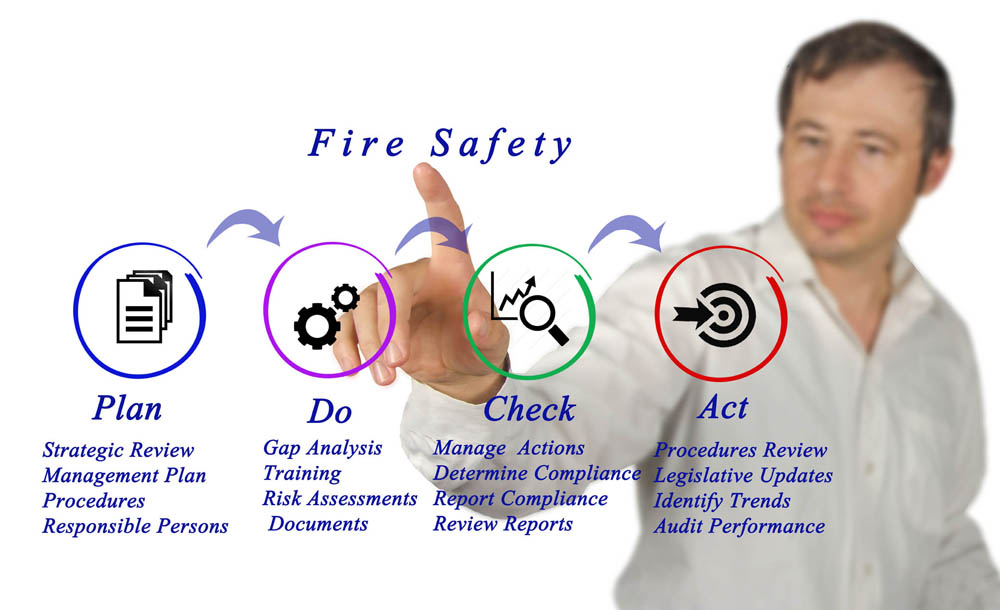A very large proportion of the UK workforce have desk-based jobs – i.e., they work in offices. As such, it is essential to consider the risk of fire breaking out in an office and take all possible steps to remove, or at least reduce such risk. Indeed, if you are the “responsible person” as defined under the Regulatory Reform (Fire Safety) Order 2005, then you are legally required to do so.
In fact, you are designated as the responsible person if you are an employer, business owner, occupier, landlord, or anyone else who may have control of the office, such as a building manager, facilities manager, or managing agent.
One of the things that you must do as the responsible person is to carry out a building fire risk assessment of your office and remove or reduce any risks. The chief cause of fires in offices is actually electrical equipment, and this can be because power sockets are overloaded or because the equipment has not been PAT tested on a regular basis. PAT testing by itself is not a legal requirement but the regulations do require you to do everything “reasonably practical” to protect people from harm.
Another cause of fires in offices is paper, card, and other flammable materials being stored inappropriately, for example under desks or next to or on top of electrical equipment. Accidents in office kitchens are also quite common.
Another problem with offices is that they are often in tall buildings. This can mean that escape is more difficult, especially if the lifts are not working, and there is another problem which is that a large office building may contain dozens of different businesses which are all separate from each other. In this case there are several responsible persons, and they have a duty to work together in order to maintain fire safety.
You May Appoint A Competent Person
Fortunately, the law takes account of the fact that the responsible person in a business may not have the required knowledge to undertake a fire risk assessment for the simple reason that they have not had the necessary training, so they are allowed to appoint a competent person – one with the necessary knowledge – to undertake the fire risk assessment on their behalf. They are still responsible overall, but can get expert help from a specialist company such as ourselves at UK-Fire Risk Assessments to carry out the assessment and make any necessary recommendations that result.
The job of a fire risk assessor is to identify fire hazards, and people at risk. He or she must also take steps to eliminate or at least reduce any risk to the minimum. Fire precautions must be undertaken to deal with any remaining risk, particularly if there are flammable materials in the premises, and there must be a plan to deal with any emergency that arises.
There are some 22,000 fires every year in non-domestic premises, of which about 5,000 are due to arson. The remainder are classed as “accidental”. It is therefore important that the fire risk assessment is reviewed from time to time and updated where necessary.
You also need to have an emergency plan for your office. This means that you need to have an appropriate fire detection system and a method of identifying a false alarm. You need to have someone whose responsibility it is to call the fire brigade, and there must be suitable emergency escape routes which must be kept clear at all times and need to be as short as possible. They should be clearly marked. You also need to have emergency doors that are easy to open, and you may also need emergency lighting.
In, addition, you need to plan a safe meeting point for employees, and it is extremely important to have employee training so that everyone knows what to do in an emergency. You also need to consider the needs of anyone who might not be able to escape quickly, such as wheelchair users for instance.
You need also to keep a written record of your fire risk assessment and your emergency plan. In particular, this is the case if your premises are licenced, as in a pub, theatre, or club, and also if you employ five or more people. You will also need to keep a written record if it is required under an Alterations Notice of the Fire Safety Order.

